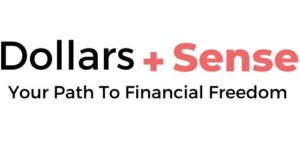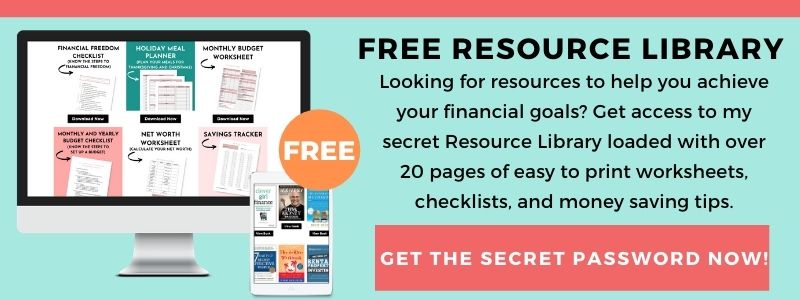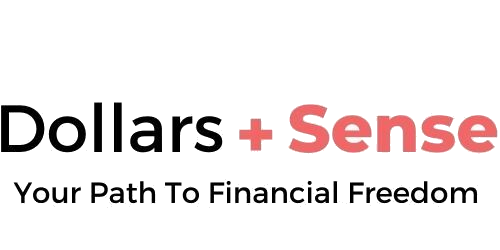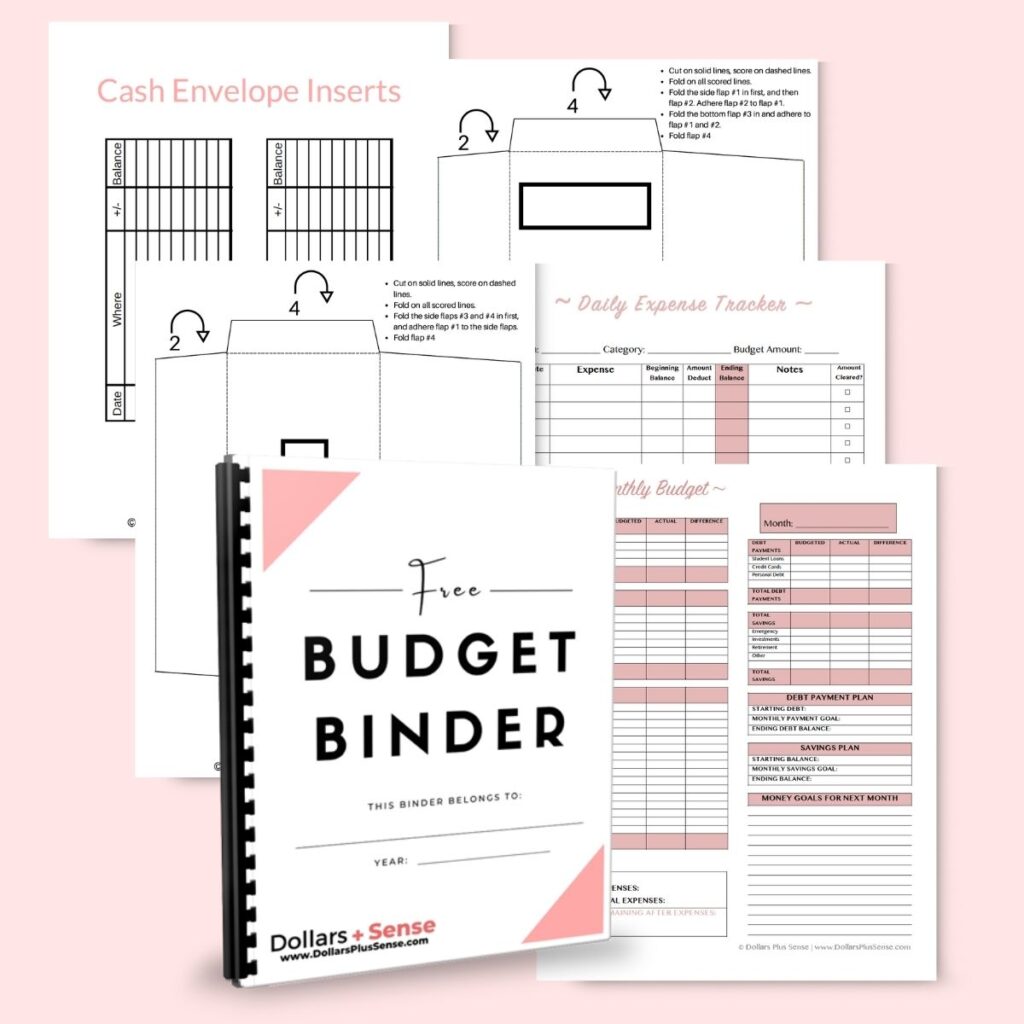Last Updated May 31, 2022
You may be wondering “Is another recession coming?” With the recent pandemic, people getting laid off, and drop in the stock market you may be wondering if a recession is right around the corner. Find out what you should be doing if you think another recession is coming.
What Is A Recession?
A recession is a period of economic decline, usually lasting for six months or longer. During a recession, you will see high unemployment, stagnant wages, a drop in retail sales, and falling stock markets.
How Do You Know When A Recession Is Coming?
There is no one way to predict when a recession will occur. If there was, I would be Warren Buffett rich by now. But there are several things that can give you a hint on whether a recession is coming soon or if one is already here.
Look At The Unemployment Rate
One of the many things you can look at to see if a recession is coming is the number of unemployed people. A high unemployment rate is a sign of a weakening economy. A declining economy will likely have a negative effect on the stock market.
However, if the unemployment rate is low or falling, that means companies are growing. Company growth is a good sign for the economy and the stock market.
Check out the U.S. Department of Labor if you want to see the number of jobless claims. They publish a weekly report which can give you a good indicator of the economy’s health.
Look At Temp Jobs

In good times, companies hire temporary workers because the demand is high and they need help quickly. But when that demand dries up, they usually get rid of their temp workers first.
When temp hiring starts to fall, that can be a sign that another recession is coming. You can take a look at the ASA monthly Staffing Index to see the changes in temporary and contract employment.
Look To See If People Are Quitting
When the economy is doing well, people are much more likely to quit voluntarily. Usually, when people quit, they feel like “I don’t have to take this…I can get another job.” However, when the economy isn’t doing too great, or it’s hard to get another job, people tend to stay and stick it out.
The U.S. Labor Department tracks the rate of people quitting in its monthly Job Openings and Labor Turnover Survey. If you see a decline in the “quits rate” this is an indicator that a recession may be coming.
Look At Interest Rates On Bonds
One more thing you can look at to see if another recession is coming is the interest rates in the U.S. bond market. A bond is when you lend your money to the government or a company for a certain amount of time and receive interest in return.
Usually, when you lend your money for a longer period of time you will get a higher interest rate than short-term bonds. The reason is simple—the longer someone holds your money the greater risk you are taking of them not paying you back. So it only makes sense that you’re paid a higher interest rate.
However, when we’re seeing short-term bonds giving a higher yield than long-term bonds, that is a warning sign that a recession may be coming. So for example, you want to look at the yield on 10-year Treasury bonds falling below those on 2-year bonds.
Look At Consumer Spending

Consumers push the economy forward. The economy can’t grow if Americans decide to stop spending.
In good times, people tend to spend more. But when consumers lose confidence in the economy, they become more frugal and hold on to every penny they have. If consumer spending decreases, that’s a sign that a recession is coming.
You can take a look at the Conference Board monthly consumer confidence index to see the change in consumer spending. You want to look at long-term declines (because the indexes are volatile from month to month).
Economists at Morgan Stanley found that a 15% year-over-year drop in the Conference Board’s index is a good predictor of a recession.
Look At Manufacturing Growth
Something else you can look at to see if another recession is coming is a decrease in manufacturer growth.
Every month, the Institute for Supply Management surveys major manufacturers about their orders, inventories, hiring, and other activity. Then they aggregate that information and put it into an index.
It is thought that if this index drops below 50 the manufacturing sector is decreasing. What you want to look for is the index falling below 45 for an extended period of time. This is usually an indicator that a recession may be coming.
Look At The Stock Market

You want to be careful here because a drop in the stock market alone is not always a reliable indicator that a recession is coming. The stock market is very volatile and constantly changes.
So what you DO want to look for is a prolonged bear market (when the stock market drops by 20% or more). The longer the bear market lasts, the more likely another recession is coming.
What CNBC has found is a bear market that lasts on average 508 days is bad enough to spark a recession.
Look At The Price Of Gold
You want to keep an eye on the price of gold. When investors get nervous about the economy, they tend to shift to buying gold because it’s considered a safer investment.
When the price of gold soars, that’s an indication that another recession may be coming.
What Should You Do Before A Recession Hits?
It’s hard to predict EXACTLY when the next recession will hit. So the next best thing you can do is prepare so you’re ready for when it does happen. So let’s discuss what you should do before the next recession happens.

7 Tips To Prepare For A Recession
1. Make An “Emergency” Budget
You should have a budget no matter what. But it’s even more CRUCIAL to have a budget during tough times. A budget helps you know where your money is going and makes it easy to see where you can cut back if you need to tighten your financial belt.
Related Article: 10 Reasons Why You Should Make A Budget
So if you want to prepare for a recession, it’s important that you make an “emergency budget” before a recession hits. An emergency budget is basically a “leaner” version of your normal budget. Meaning this budget only includes your bare necessities and eliminates any “wants.”
Things that I consider to be bare necessities are:
- Rent/Mortgage
- Groceries
- Utilities, and
- Transportation
Anything else should be eliminated from your budget. This emergency budget should be the budget you use if you’re going through a tough financial time.
If you haven’t made a budget yet, don’t wait one more day! You can start with this FREE Monthly Budget Printable or use one of my budget excel templates.
This budget spreadsheet is how I was able to save over 50% of my income. If you want to learn more about exactly how I use this excel spreadsheet, you can read my detailed article “How I Use My Monthly And Yearly Household Budget Spreadsheet.”
2. Build Up Your Emergency Fund
An emergency fund is money set aside to help you through hard financial times (like a job loss). This is one of the most important things you should do to prepare if you think another recession is coming. Having an emergency fund will make sure you can still cover your bills if you fall on hard financial times.
I recommend saving 3 months’ worth of living expenses if you have relatively strong job security. I recommend 6 months (or more) if you have some instability in your employment or if finding another job could take you a long time.
You should have an emergency fund even when we’re not in a recession. This is because unexpected expenses (like a car breakdown) can happen at any time. An emergency fund prevents your budget from getting thrown off when these types of expenses come up.
Since an emergency can come at any time, it’s very important to have quick access to your money.
Therefore, I recommend you open a high yield savings account to an online bank account. You get two benefits of banking online:
- They usually pay higher interest on your money than a brick and mortar bank; and
- It reduces impulse purchases because your money is a little harder to access. With online banks, it usually takes a few business days for the money to be transferred to a physical bank where you can withdraw cash.
A good online bank I like is CIT Bank. They offer competitive interest rates, have no monthly maintenance fees, and you only need $100 to open an account.
Read my detailed article “How To Build An Emergency Fund” to learn more on emergency funds.
3. Get Rid Of High-Interest Debt

After you have your emergency fund fully funded, it’s important to get your debt under control.
The more monthly debt payments you have, the more money you need to cover your expenses every month. The more money you need every month, the harder it is to make ends meet during a tough financial time.
Start by paying off your highest-interest debt first. I consider any debt with an interest rate above 8% to be “high interest.” By focusing on your high-interest debt, it will reduce how much you pay in interest over the life of the loan.
The reason why I would pay off any debt with an interest rate above 8% is because the stock market has returned about 8% over the long haul. Paying off a debt with an interest rate greater than 8% is the equivalent to getting a guaranteed return of more than 8% on an investment.
Therefore, paying off your high-interest debt above 8% will most likely give you a better return on your money than investing in the stock market.
For your lower interest loans, pay only the minimum monthly payment while you are focusing on paying down your highest interest rate debt.
Once you have paid off one loan completely, take the funds that are now freed up and apply it to the next debt in line. Do this until that loan is completely paid off, and then repeat again.
I have a Debt Worksheet that you can find in my FREE Resource Library that will help you become more organized and prioritize your payment plan.
Related Article: How To Pay Debt Faster (Even If You Have No Money And A Low Income)
Speed Up Paying Off Your Debt
You can try out my Debt Payoff Spreadsheet to help you speed up paying off your debt. This spreadsheet will help you create a fully custom debt payoff plan to help you know EXACTLY when you will be debt-free. You will be motivated to get out of debt when you see how much progress you’re making and can see the finish line.
You can also use an app like Tally. Tally is the world’s first automated debt manager that makes it easy to save money, manage your cards and pay down balances faster.
The way it works is Tally analyzes your credit cards and finds ways to help you eliminate debt and save money. If you qualify, Tally gives you a line of credit with a low APR, then uses the new credit line to pay your credit cards every month. The low APR helps save you money on interest.
Tally manages all your credit cards in one simple app. They keep track of the balances, interest rates, and due dates for each card. That’s how Tally makes the right payment to the right card at the right time. All you have to do is make one monthly payment to Tally.
Tally is free to download, and they don’t charge any fees to use the app. The way they make money by charging interest on the amount borrowed (which is a lower interest rate than what your credit cards are currently charging you).
I highly recommend Tally because they only make money if they can save you money.
4. Establish Other Streams Of Income
It is so important to have an additional source of income because it protects you in case one source “dries up.” A loss of income is the biggest threat during a recession. So to prepare for the next recession you cannot rely on only one source of income. You can add other sources of income by:
Finding A Part-Time Job
This is pretty self-explanatory. You can do almost anything as a part-time job.
Some examples are driving Uber, bartending, tutoring, retail, customer service representative, etc. Use my Uber link for $740 guaranteed. If you earn less, Uber will pay you the difference.
Starting A Part-Time Business Or Side Hustle

I personally like side hustles more than a part-time job because you’re the boss, and therefore offered more flexibility. In addition, there is more room for income growth.
The only downside to a part-time business is your income is not as stable or predictable as it would be if you had a part-time job.
When deciding what kind of part-time business to start, ask yourself “What are my talents and skills?” Figure out what kind of things you like to do.
Is there a way to turn your hobbies into additional income? If so, consider starting a part-time business or side hustle.
Establish Passive Income
In short, passive income is money you can make in your sleep. This is my favorite way to earn more money. It is money that comes from a source other than an employer. The source is usually from real estate or a business you are not actively involved in.
There are so many ways you can establish passive income such as lending money, creating a product, or investing.
Having additional sources of income can also help you save more money every month to put towards your emergency fund and paying down high-interest debt.
Related Article: Best Ways To Start Investing For Beginners: Investing 101
5. Make Sure You Have A Balanced Portfolio

If you think another recession is coming, it’s important for you to regularly rebalance your portfolio. Rebalancing is when you sell and buy assets in your portfolio to match your asset allocation plan.
For example, say you originally assigned 70% or your portfolio to stocks and 30% to bonds. If your stocks performed well during that year, it could increase the percentage of stocks in your portfolio to 80%.
Therefore, you may want to sell some stocks and buy bonds to get your portfolio back to the original target allocation of 70:30.
You may wonder “Why would I want to rebalance my portfolio and sell my stocks if they’re doing great?” The short answer is because rebalancing reduces your risk.
You want to take profits from your winners from time to time. By rebalancing your portfolio, although you give up some of the upside, you minimize your loss during the downside of a market.
Since you can’t time the market, it forces you to buy low and sell high—which is how you make money in investing.
Related Article: 3 Simple Long Term Stock Investment Strategies
6. Make A Plan To BUY During A Recession

I know it may sound crazy to put money in a downward-trending market and buy during a recession, but you will benefit from this in the long run. When the market goes down, that’s a good time to buy high-quality companies at an excellent price.
However, don’t try to predict the bottom, or wait until the economy shows signs of recovery before you take the plunge—that is too risky. Just maintain your regular contributions to your investment accounts.
I personally use Robinhood to purchase individual stocks and implement this strategy. Every month I automatically transfer money to my Robinhood account and buy stocks in companies I believe in.
I like this website and app because you can buy and sell stocks for FREE—there are no commissions or fees. Most other brokerage firms charge at least a $4.95 fee per trade, and some have hidden fees.
Sign up today and you and I can get a free stock like Apple, Ford, or Sprint. With Robinhood you also don’t need a minimum account balance, so you can get started right away.
The reason you want to continue to invest during a recession is the economy will eventually get better over time. That’s a normal part of economic life. If you buy low now, you can sell those high-quality stocks later when the recession ends and times are good.
Related Article: What To Do When Stocks Go Down? (This Is What I Did)
7. Track Your Wealth

You should get into the habit of tracking your wealth to make sure you’re on track with your financial goals.
Sign up for Personal Capital, a FREE wealth management tool to help you get a better understanding of your finances. After you link all your accounts, you can see all your accounts in one place to have better money oversight.
If you sign up today and link at least one of your investment accounts (with a balance of more than $1,000), we’ll each get $50. That’s FREE money for keeping track and staying on top of your finances (something you should be doing anyway)!
Another great FREE tool is Personal Capital’s Retirement Planning Calculator. You should definitely use this tool to map out your financial future. Simply link all your retirement accounts to Personal Capital so you can see all your accounts in one place and track your progress.
How Can You Benefit From A Recession?
We all hate recessions, but you can turn a bad situation into a positive one. There are many ways you can benefit from a recession. Some ways you can benefit from a recession are…

Take Advantage Of Lower Interest Rates
Right now, interest rates for loans are still low. So consider getting a personal loan at a lower interest to pay off your credit card debt, refinancing your student loans or mortgage at a lower rate.
Now is a good time to look into refinancing your debt because you can potentially save a LOT of money.
Take Advantage Of Defaults
When we’re in a recession and times are bad, people lose their homes. I know that’s a terrible thing, and some people may struggle with this morally, but that’s where you will find the best deals.
When people default on their mortgage, properties can be yours for pennies on the dollar. Once the market recovers, your property value will most likely also increase.

Build Your Portfolio While Prices Are Low
A recession is usually a good time to start building up your portfolio and investing more. Some things you can invest in when a recession hits are reliable dividend stocks and real estate.
When a recession hits, stock prices and home values drop. This makes it a great buying opportunity for you—especially for real estate.
A recession is a perfect time to buy real estate because no one is buying houses. People are trying to hold on to the little money that they do have, and as a result, the prices of houses fall. Interest rates are also lowered to incentivize people to borrow money and buy.
So what does that mean for you? That means you can buy a house at a large discount and with a low interest rate.
As time passes, the value of your stocks and property will rise back to “normal” and you will be sitting pretty!
Summary
It’s important to establish good financial habits now if you think another recession is coming. While no one can predict when the next recession will start (or when it will end), following these tips to prepare for a recession will help you weather any kind of market better.
Related Articles:
- 7 Things To Do When You Need Help Paying Bills
- Best Way To Budget On One Income
- 5 Personal Financial Lessons From The Government Shutdown
If you want to remember this article, pin it to your favorite Pinterest board.













